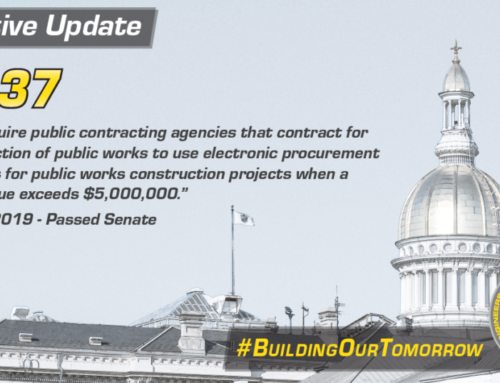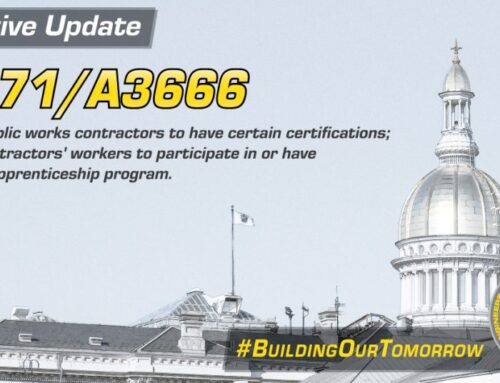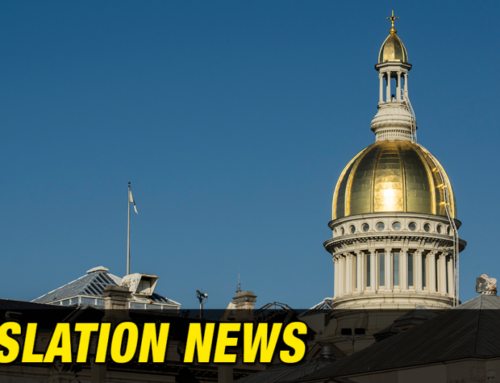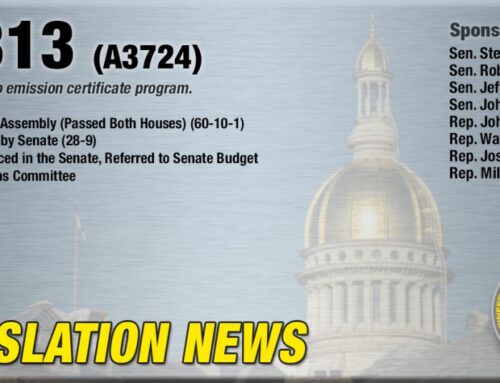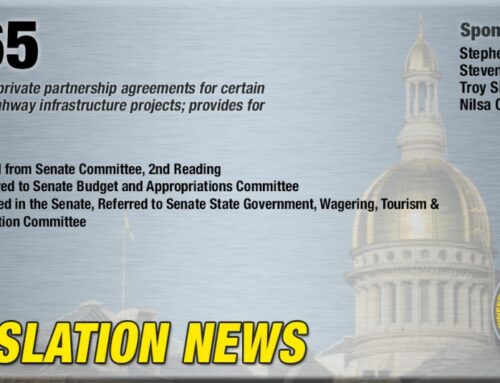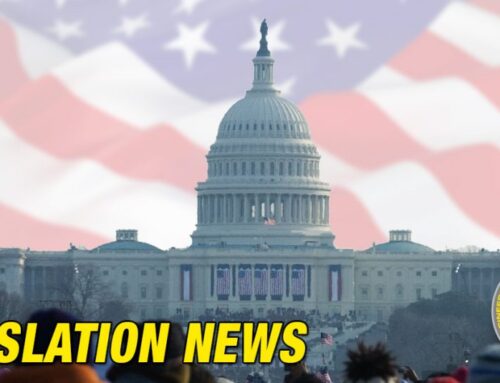Permits public-private partnership agreements for certain building and highway infrastructure projects; provides for EDA oversight.
“This bill permits certain government entities to enter into public-private partnership agreements with private entities for undertaking certain building and highway infrastructure projects, and provides for oversight of these agreements by the New Jersey Economic Development Authority (EDA). Under the bill, local government units, school districts, and State government entities would be eligible to enter into public-private partnership agreements with private entities. Under current law, a State college or county college is already authorized to enter into public-private partnership agreements under the provisions of N.J.S.A.18A:64-85, and Rowan University may also do so under that statute pursuant to N.J.S.A.18A:64M-9.1. This bill authorizes the New Jersey Institute of Technology to also enter into public-private partnership agreements under N.J.S.A.18A:64-85. The bill specifically allows the government entity to enter into a public-private partnership agreement under which the private entity assumes financial and administrative responsibility for the development, construction, reconstruction, repair, alteration, improvement, extension, operation, and maintenance of a project of, or for the benefit of, the government entity, provided that the project is financed in whole or in part by the private entity. The bill requires that workers employed in the construction, rehabilitation, or building maintenance services of a project by a private entity that has entered into an agreement with a government entity be subject to the applicable provisions of the “New Jersey Prevailing Wage Act;” that building construction projects undertaken pursuant to an agreement contain a project labor agreement; and that the general contractor, construction manager, design-build team, or subcontractor for a project is registered and classified by the State to perform work on a project. Under the bill a public-private partnership project may be structured using availability payments as a financing method. However, the bundling of multiple projects would be prohibited. In addition, roadway or highway projects must include an expenditure of at least $10 million in public funds or any expenditure in private funds. A private entity would be required to establish a construction account to fully capitalize and fund the project, while the general contractor, construction manager, or design-build team would be required to post performance and payment bonds, instead of the chief financial officer of the public entity. A contractor would be precluded from engaging in a project having an expenditure of under $50 million if the contractor contributed more than 10% of the project’s financing. All projects would be required to undergo a procurement process established under the bill. All applications for agreements authorized under the bill are to be submitted to the EDA for its review and approval prior to commencing the procurement process. The EDA would have the power to cancel procurement after a short list of private entities is developed, if deemed in the public interest. The bill also requires the EDA to post on its official website the status of each public-private partnership agreement subject to its consideration, review, amendment, or approval, indicating the status of each agreement by designating it as a proposed, under review, or active public-private partnership project.”
SOURCE: https://www.billtrack50.com/BillDetail/919685
The companion bill S865 was passed out of the Senate Budget and Appropriations Committee on April 15, 2018.




